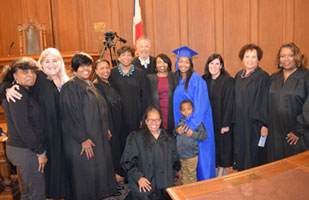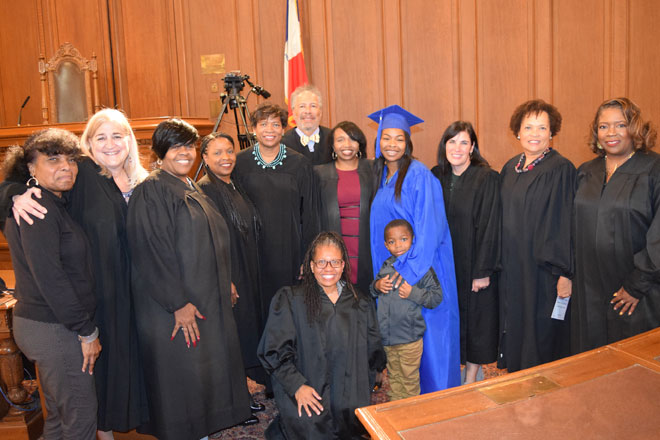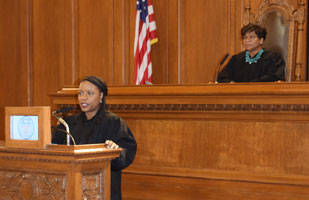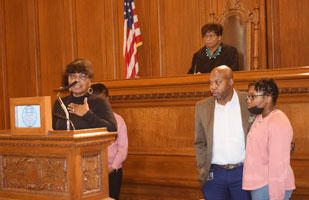Court Renamed to Honor Jurist

Caption.

Supreme Court of Ohio Justice Melody Stewart led a procession of two dozen Cuyahoga County municipal, common pleas, and appeals judges. The Cleveland Metro Schools All City Choir performed under the direction of Dr. David Thomas.
It was more than the usual fanfare for a drug court graduation. But this was no usual graduation.


The Greater Cleveland Drug Court was graduating three participants. And it was also getting a new name. Cleveland Municipal Court Administrative and Presiding Judge Michelle Earley officially proclaimed the court was renamed the Judge Larry A. Jones Drug Court, in honor of the judge credited with establishing the specialized docket in 1997.
Judge Jones served on the Cleveland Municipal Court for more than two decades, was Presiding and Administrative Judge for 14 of those years. He was dedicated to holding offenders accountable and providing treatment and resources to break the cycle of drug abuse and drug-related crime.
Judge Jones is credited with steering more than 750 people to treatment and recovery. He was then elected to the Eighth District Court of Appeals.
“Larry knew that everybody makes mistakes, believed that everyone deserves the chance to be better and to do better, and that nobody is a throw away,” said Justice Stewart. Justice Stewart served with Judge Jones on the appellate bench.


The drug treatment court has gone on to graduate nearly 1,900 people. There were three new graduates this week, including two from Nepal. The court provided an interpreter for the ceremony.
During the ceremony, Judge Jones was recognized as an asset to the bench and a trailblazer in the community. His widow Jennifer was joined by their son Larry Jr., daughter LaToya, and granddaughter Ciera. Jennifer Jones echoed her husband’s words, “In my 21 years as a judge, Drug Court has touched me both personally and professionally and it truly has become my greatest accomplishment,” he said.
Judge Jones died unexpectedly, one year ago this month at 68 years old. His commitment to treatment-based rehabilitation is the legacy that lives on in the work of the court that now bears his name. And three new graduates earned the opportunity to be part of that legacy.


